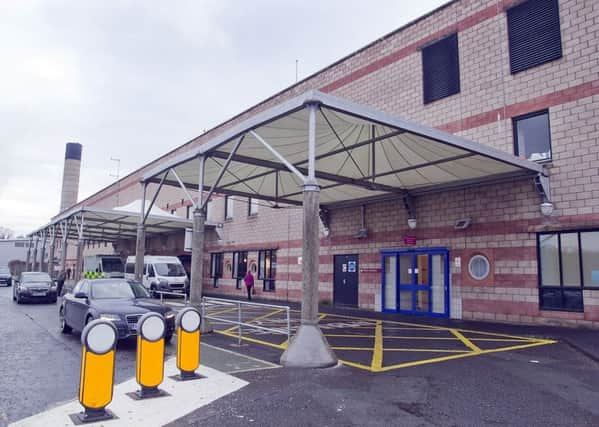Number of A&E patients kept waiting over four hours at Borders hospital up by almost a third


Data published by NHS Scotland’s information services division shows that more than 2,400 patients were forced to wait for over four hours to be seen by medics at the Melrose hospital last year, up 31.5% on 2017.
On top of that, the number of people kept waiting for longer than eight hours increased by 58% and the amount waiting for over 12 hours was up 67%.
Advertisement
Hide AdAdvertisement
Hide AdHowever, the percentage of people being seen within four hours also increased over that 12-month period, rising from 86.8% to 96.7%, meaning that though the number of people waiting longer than four, eight and 12 hours has grown, the vast majority of patients are still seen within four hours.
South Scotland Labour list MSP Claudia Beamish is concerned by the statistics, saying: “These staggering figures expose the scale of the challenge NHS staff face in delivering patient care and how badly they have been let down by years of Scottish National Party mismanagement of our NHS.
“Increasing numbers of people waiting too long at A&E reveals unacceptable pressure on other parts of our health service such as in social care and primary care.
“We already know that staff do not feel they are getting enough support and that the level of unfilled health posts is unsustainable.
Advertisement
Hide AdAdvertisement
Hide Ad“I have written to NHS Borders to understand more about the underlying reasons for these increases.
“Ministers set health service targets for staff to hit and then do not deliver the support and resources needed. It simply isn’t good enough.”
Ettrick, Roxburgh and Berwickshire MSP Rachael Hamilton, a Conservative, agreed, saying: “NHS Borders staff work incredibly hard to care for every patient, but there is increasing pressure on services due to the decisions of SNP ministers who have led NHS Scotland into a workforce crisis over the last 11 years.
“Scotland is to get a £2bn funding boost from the UK Government as a result of more cash going to the NHS in England.
Advertisement
Hide AdAdvertisement
Hide Ad“We need to see the SNP stop the grievance politics and use the money effectively to ensure we see A&E properly staffed and managed.”
However, Christine Graham, SNP MSP for Midlothian South, Tweeddale and Lauderdale, pointed out that Scottish A&E departments are performing better than their neighbours, insisting: “Scotland’s A&E departments consistently outperform their counterparts in England and Wales.
“In the Borders, the number of people waiting for less than four hours in A&E has improved from 86.8% to 96.7% since January 2018, meaning that NHS Borders are beating Scotland-wide targets.
“The Scottish Government’s £850m waiting times improvement plan sets out action to improve clinical effectiveness and efficiency, increase capacity, and design and implement new models of care.
Advertisement
Hide AdAdvertisement
Hide Ad“The Scottish Government also announced in the budget that £392m will go towards reducing waiting times.”
An NHS Borders spokesperson added: “We work very hard to see people in a timely manner, and over the past 16 months, we have managed to see an average of 93 out of 100 patients within the national four-hour waiting time target.
“During the same period, the national average has been 91 patients out of 100.
“We recognise that health and social care across the country faced unprecedented challenges during winter 2017-18 such as a long, harsh winter featuring the Beast from the East and high numbers of influenza and norovirus.
Advertisement
Hide AdAdvertisement
Hide Ad“This did impact on NHS Borders, and when we are caring for a high number of sick people who cannot leave hospital until they are well enough, it can take longer for us to see new patients arriving at our emergency department.
“This is not what we would wish for the people of the Borders, and we continually strive to improve our services so that we can provide prompt care to our patients.”
“To ensure our patients receive the right treatment from the right services we would encourage people to continue to keep the emergency department for emergencies by using their local community pharmacy, minor injuries units and self-care when appropriate, as well as phoning NHS 24 on 111 for advice.”